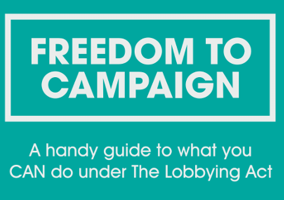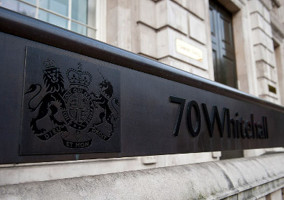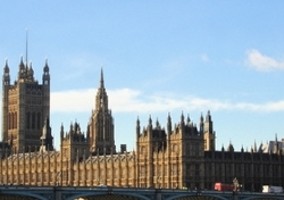Charities have issued fresh warnings that the government’s behaviour is discouraging charities from speaking out and having a genuinely “chilling effect” on campaigning.
The fresh warnings come as the Sheila McKechnie Foundation published the findings of its latest research, The Chilling Reality: How the Lobbying Act is affecting charity and voluntary sector campaigning in the UK. In it, 51 per cent of survey respondents said that the Lobbying Act had affected their ability to deliver their mission.
This research builds on an earlier report by the Sheila McKechnie Foundation about the Lobbying Act, which in 2017 found that 90 per cent of respondents felt the legitimacy of campaigning was under threat, with the Lobbying Act cited as one of the main problems.
Some 92 campaigners took part in the research to investigate the impact of the act in more detail, through an online survey, in-depth interviews and round tables.
It found that charities were less likely to be involved in political debate. One third of respondents said that there had been a negative effect on building coalitions of charities and 36 per cent have changed their language or tone of campaigns.
Charities also reported that complying with the Lobbying Act wastes time and money, slows down decision making and stops some activity all together.
Findings ‘deeply worrying’
Sue Tibballs, chief executive of the Sheila McKechnie Foundation, said: “What we have found is deeply worrying. This research provides clear evidence that the ‘chilling effect’ is not an illusion and nor is it somehow self-imposed. It’s a rational response to this ambiguous and onerous legislation.”
Last month Matt Hancock, culture secretary, said he wanted charities to be recover their confidence on campaigning, and the minister for civil society, Tracey Crouch, is working with the Electoral Commission to produce guidance.
But Tibbals said this does not go far enough.
“The government has made very positive statements about the importance of civil society voice and campaigning in recent weeks, which is welcome. But our research shows that their actions are constraining that voice, threatening civil society space in the UK and compromising public interest,” she said. “We are calling on them to pay attention to this evidence and re-consider their current position.”
Claire Godfrey, head of policy and campaigns of Bond, an umbrella body for international development charities, said: “The evidence is unequivocal - this ambiguous and burdensome piece of legislation is stopping charities from speaking up and speaking out for the most vulnerable and marginalised people both here in the UK and globally.”
Blocking grassroots community action
Neil Jameson, executive director of Citizens UK, said his organisation had been unable to work with small refugee groups during the 2017 general election because of rules around joint working.
“It is not just the spending; volunteer citizens will be tied up in kafkaesque bureaucracy and paperwork that even legal experts struggle to interpret with any degree of certainty. It is a shocking failure of democracy, that small coalitions of grassroots organisations are unable to work together, just when public life is crying out for participation,” he said.
He called for the act to be repealed, or for charities to be exempt, and said that new guidance would not improve the situation.
“Because of the complexity and the interaction of charity law, the Lobbying Act and other election legislation, there is confusion in the sector and some misunderstanding. We are repeatedly told by government that all that is required is more guidance. However, the answer is not more guidance because guidance can’t change the fundamentally chilling, confusing and byzantine nature of the law. Guidance cannot, for example, cure breaches of human rights such as the year-long retrospective regulated period,” he said.
|
Related articles












